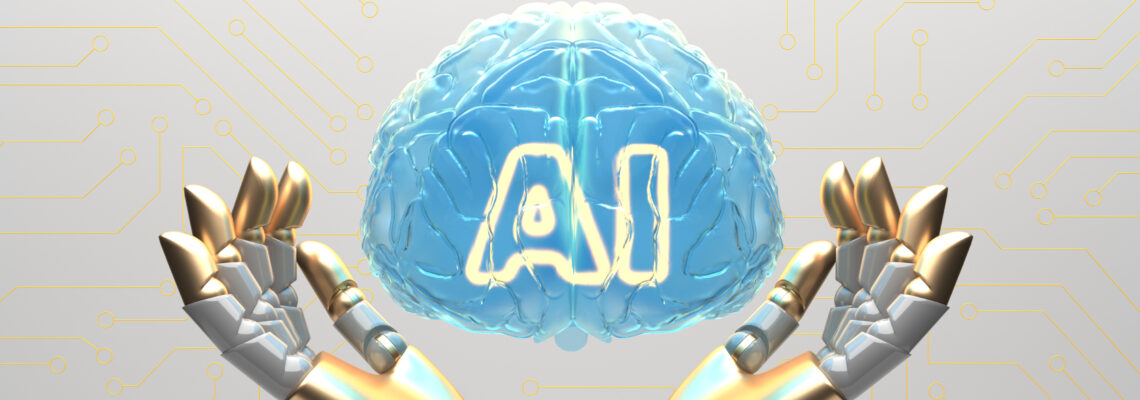
Unlocking the Potential of AI in Intellectual Property Rights (IPR)
In the ever-evolving tech-driven world, Artificial Intelligence (AI) has taken center stage, promising groundbreaking innovations that challenge traditional Intellectual Property Rights (IPR) concepts. AI’s rapid rise has left us pondering the intricate issues surrounding patents, copyrights, and the governance of AI-driven inventions.
Table of Contents
ToggleAI is everywhere in today’s business landscape, from chatbots to healthcare services and content generation, enhancing creative processes and operational efficiency. However, its integration into various sectors has stirred concerns within the domain of Intellectual Property (IP) law.
This convergence of AI and IPR has not gone unnoticed. Experts worldwide have conducted numerous studies, emphasizing the urgent need to address the intricate interplay between AI and intellectual property rights. The advantages and risks of AI are extensive, but one thing is clear – the commercialization of AI is inevitable.
This leads us to a pressing question: Do our current legal frameworks effectively address the challenges brought about by AI’s commercialization and utilization? Unfortunately, the answer is no. The existing legal landscape falls short of tackling these issues effectively.
AI’s Influence on Intellectual Property Rights
In our journey through the ever-expanding digital realm, it becomes increasingly apparent that AI is reshaping our legal frameworks and established norms, including Intellectual Property (IP) rights. Traditionally, IP laws recognize humans as the rightful owners of intellectual property, but the rapid advancement of AI technologies raises questions about the attribution of creative works generated by AI.
AI lacks legal personhood, which introduces complexities regarding authorship, ownership, and IP protection. This prompts a reevaluation of traditional IP laws, with ethical considerations such as bias and fairness becoming crucial in legal discussions.
Historically, courts have relied on the “sweat of the brow” principle, emphasizing the significant effort invested by human inventors. However, this principle becomes intricate when AI-generated IP is involved.
Moreover, the commercialization of AI may challenge IP rights, as AI systems can produce IP more efficiently than humans. AI is often seen as a ‘smarter’ inventor, requiring less time and effort for IP registration. This introduces unforeseen challenges and necessitates a fair legal framework for the evolving AI-driven IP landscape.
Currently, there is no specific legal framework for regulating AI comprehensively. Existing laws primarily focus on conventional forms of IP protection, like literature, creative works, and inventions. However, AI’s capabilities go beyond these categories, demanding a specialized approach. The absence of dedicated AI regulations underscores the need for a distinct legal framework to address AI’s unique challenges effectively.
The World Intellectual Property Organization (WIPO) has taken steps to gather public input on AI’s potential impact on global IP rights. Their focus extends from IP creation to evaluation, commercialization, transfer, and assignment, highlighting the need to update current laws to recognize the investments in terms of time, resources, and labor involved in AI creation and the utilization or transfer of AI-generated IP.
AI in Intellectual Property Rights: A Perspective from India
WIPO’s discussions on AI’s impact on global IP laws are significant, but specific regulations addressing AI-based intellectual property are yet to be established by member states. India, a country actively embracing AI for innovation and economic growth, demonstrates a balanced approach to AI in Intellectual Property Rights.
India’s IP laws offer protection for a range of creative works, but addressing the challenges presented by AI-generated IP is crucial. This includes crafting explicit guidelines for IP ownership, exploring new criteria for authorship, and considering the implications of AI’s rapid output on IP duration and protection.
Recent Indian legal cases provide examples of the urgent need for clear and updated intellectual property laws in India to address the dynamic challenges posed by AI technology. The Indian judiciary has demonstrated a pragmatic and balanced approach, ensuring harmony between innovation promotion and AI protection in Intellectual Property Rights.
AI as an Intellectual Property Owner: Navigating Ownership Challenges
The emergence of AI as an intellectual property rights holder raises questions about infringement, accountability, and transparency. AI’s potential to infringe on the rights of third parties, especially in copyright, demands consideration. Proving access to protected material becomes feasible due to AI’s vast digital access.
Transparency in AI systems, often treated as trade secrets, is another issue. Balancing transparency with the protection of intellectual property is a growing concern in our society, which increasingly values openness and responsibility in decision-making processes.
The pressing question is, “How should transparency be managed in cases involving dynamic AI systems with opaque elements, whether for technological or legal reasons?”
The resolution of AI-related matters in Intellectual Property Rights currently falls under court jurisdiction. However, well-defined rules and regulations are needed in this domain. Existing IP laws must evolve to address AI’s challenges effectively and harness its potential for future innovations.
In conclusion, the role of AI in intellectual property ownership poses complex questions and challenges that require thoughtful consideration and clear legal frameworks to ensure that rights and responsibilities in this emerging landscape are adequately addressed.


Excepteur sint occaecat cupidatat non proident, sunt inlpa officia deserunt molliteu animeta idestrume Sed utaiciatis unde omnis iste natus error sitame voluptatem accusntium dolorem aquesim laudaiumin totam rem aiam eaque ipsa quae abillointore veritatis et quasi architecto eibeatae vitae dictaan suntise explicabo nemo enim ipsam voluptatem quia voluptas.
Excepteur sint occaecat cupidatat non proident, sunt inlpatiume officia deserunt molliteu animeta idestrume Sed utaiciatis unde omnis iste natus error sitame voluptatem accuium dolorem aquesim laudaiumin totam rem aiam.
Excepteur sint occaecat cupidatat non quia proident, sunt inlpa officia deserunt molliteu animeta idestrume Sed utaiciatis unde omnis iste natus error sitame voluptatem accusntium dolorem aquesim laudaiumin totam rem aiam eaque ipsa quae abillointore veritatis et quasi architecto eibeatae vitae dictaan suntise explicabo nemo enim ipsam voluptatem voluptas.